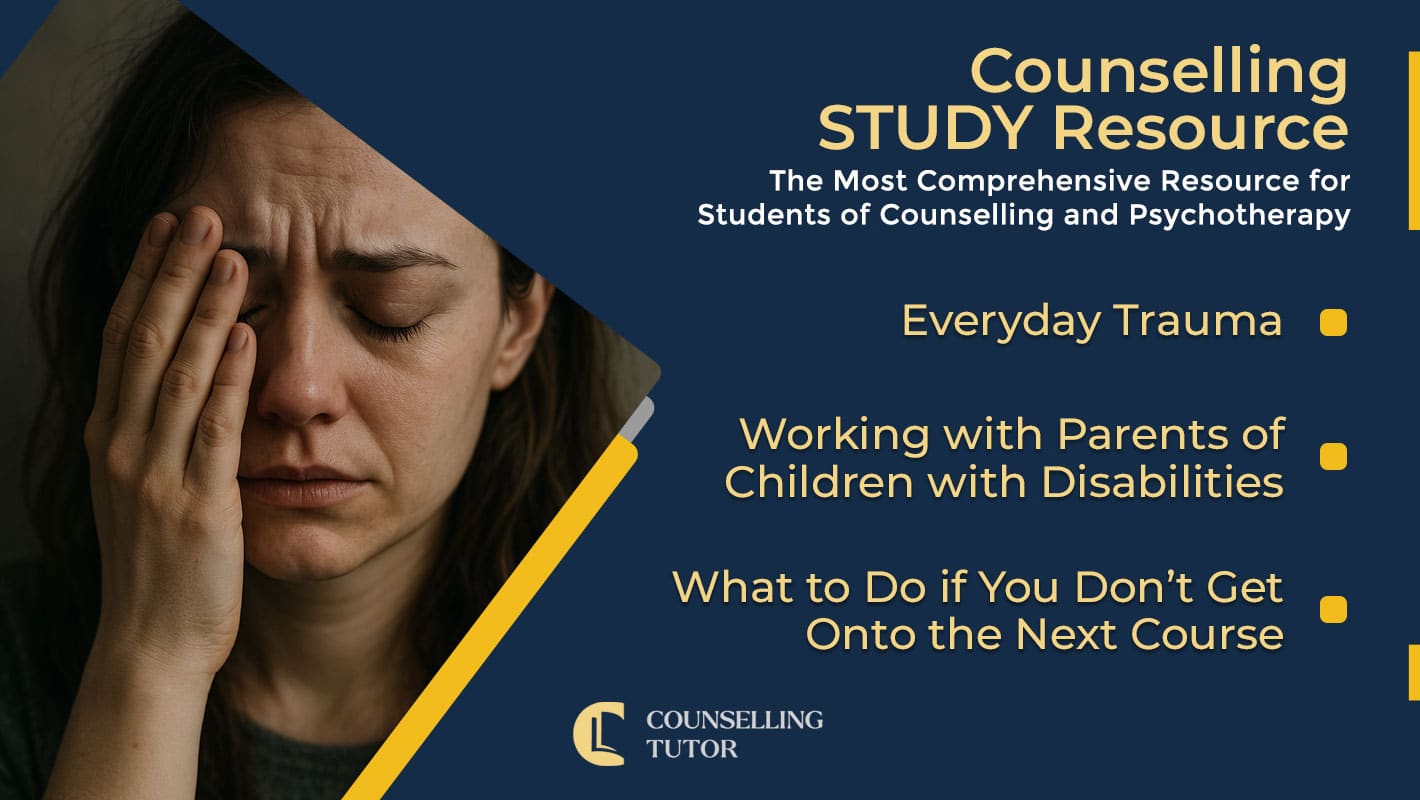See Counselling Skills Used in Real Sessions by Qualified Therapist
Real Sessions – Real Presentations – Real Skills
Gain the competence and confidence to use counselling techniques effectively!

In Episode 341 of the Counselling Tutor Podcast, your hosts, Rory Lees-Oakes and Ken Kelly, take us through this week’s three topics:
Firstly in ‘Ethical, Sustainable Practice’, we explore the concept of everyday trauma.
Then in ‘Practice Matters’, Rory speaks with Ellie Finch and Dr. Jo Griffin about their CPD lecture, which focuses on working with parents of children with disabilities, complex medical conditions, and special educational needs.
And lastly in ‘Student Services’, Rory and Ken discuss what to do if you don’t get accepted onto the next stage of your counselling training, offering support and strategies for staying motivated.
In this section, Rory and Ken discuss how trauma isn’t always caused by major events, it can also be the result of ongoing low-level stressors. These “small-t” traumas are often overlooked but can be just as impactful.
Key points include:
Rory and Ken highlight the importance of:

Real Sessions – Real Presentations – Real Skills
Gain the competence and confidence to use counselling techniques effectively!
In this week’s Practice Matters, Rory is joined by Ellie Finch and Dr. Jo Griffin to discuss their new CPD lecture. They focus on how therapists can support parents who care for children with disabilities, complex medical conditions, or special educational needs (SEND).
Key points from this discussion include:

On-demand access to a rich lecture library covering theory, skills, and professional development for counselling students—Mapped to the UK awarding body criteria
“The Student Library has been BRILLIANT, I can’t recommend it enough!
It has been a lifeline in helping me prepare for practice and my first clients. If you’re considering it, go-for-it, it’s absolutely worth it!”
Kelly – Graduated and now in practice.
In this section, Rory and Ken talk through the common but difficult experience of not being accepted onto the next stage of your counselling course.
Key points include:
Everyday Trauma

Get on-demand Certified CPD that is implementable in your practice
